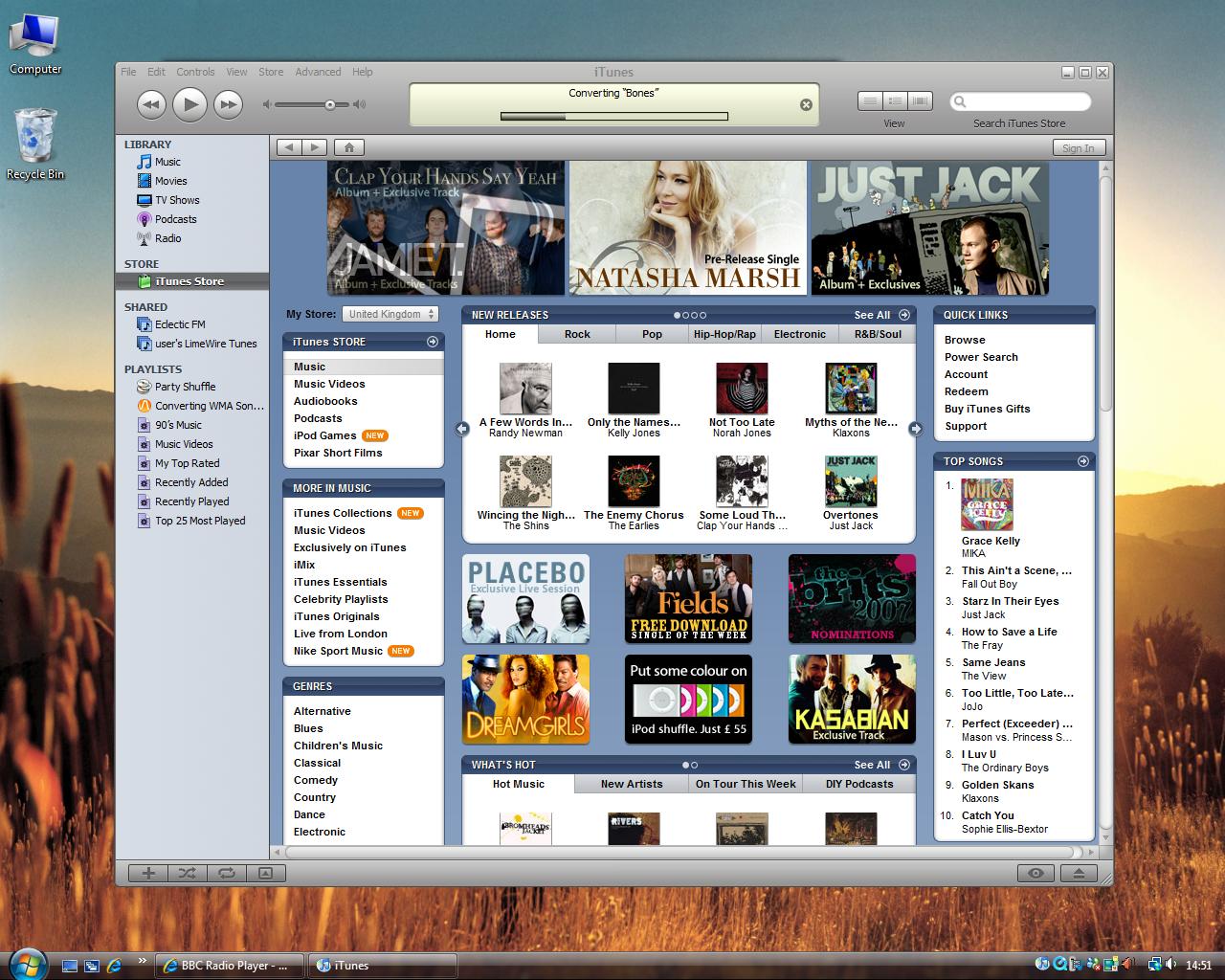EU accuses Apple of being anti-competitive
Formal statement also sent to undefined major record labels

The European Commission has accused Apple and top record labels of restricting music sales. The 'Statement of Objection' is in "relation to agreements between each record company and Apple that restricts music sales." The EU says the practice violates rules on restrictive business practices.
It is not yet known which major labels have been sent the statement of objections. The Commission's investigation was first mooted in 2005, when a Which? investigation found that iTunes customers in France and Germany pay far less for their tracks than we do in the UK.
The statement cites the lack of ability for consumers to buy music from other national flavours of the iTunes Music Store . "Consumers are thus restricted in their choice of where to buy music, and consequently what music is available, and at what price," says a statement released by the Commission.
This restriction is imposed by a process that the EU clearly has a problem with - in order to buy music from the UK iTunes Store you must have a credit or debit card from a UK bank issued to a UK address.
An Apple spokesperson told Reuters it wanted to offer a European-wide store, but was prevented doing so because of record company preferences. "Apple has always tried to operate a single pan-European iTunes stores accessible by anyone from any member state. But we were advised by the music labels and publishers that there were certain legal limits to the rights they could grant us."
Apple reached agreement with EMI yesterday to carry non-DRM protected tracks on its store for 99p instead of 79p. The iPod-maker has long blamed the restrictiveness of iTunes on the preferences of record companies rather than its own. The deal will be offered to other online music stores by EMI so as not to seem anti-competitive.
However, the EU's statement makes clear the investigation isn't DRM-related. "The Statement of Objections does not allege that Apple is in a dominant market position and is not about Apple's use of its proprietary Digital Rights Management (DRM) to control usage rights for downloads from the iTunes on-line store."
Sign up for breaking news, reviews, opinion, top tech deals, and more.
The Statement of Objection is the first formal step to a full-blown antitrust investigation. Apple - and the major record companies involved - will have two months to defend themselves in writing. They can also ask for a hearing, after which the commission can start the investigation. The commission can impose a fine of up to 10 per cent of a company's worldwide annual turnover.
Dan (Twitter, Google+) is TechRadar's Former Deputy Editor and is now in charge at our sister site T3.com. Covering all things computing, internet and mobile he's a seasoned regular at major tech shows such as CES, IFA and Mobile World Congress. Dan has also been a tech expert for many outlets including BBC Radio 4, 5Live and the World Service, The Sun and ITV News.